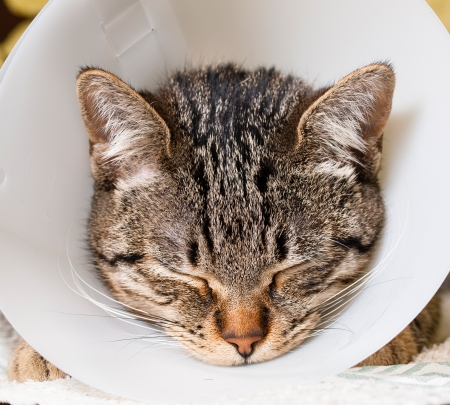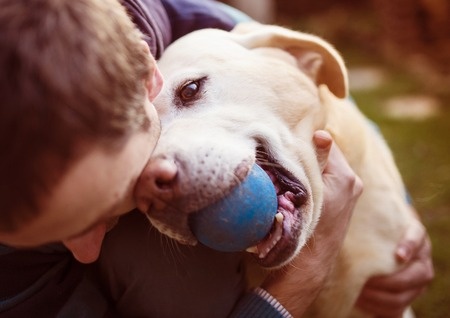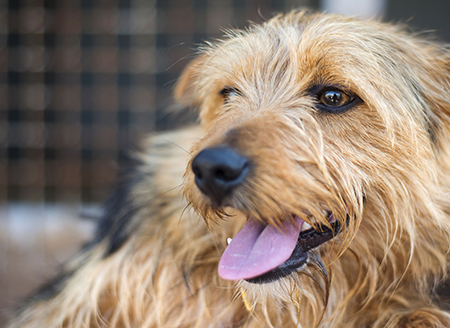Frequenty Asked Questions
Veterinary FAQs
What do dog vaccinations protect against?
Rabies is a fatal virus disease that can infect all warm-blooded animals, including dogs and humans.
Canine parvovirus produces a potentially fatal disease of the gastrointestinal tract and, less commonly, the muscles of the heart.
Canine coronavirus infection is a highly contagious gastrointestinal disease among dogs.
Canine distemper is a highly contagious, and potentially fatal, viral disease in dogs.
Hepatitis (CAV-1) is a virus that can damage the liver, kidneys, spleen and lungs in dogs. Puppies are more likely to die from infection than adult dogs.
Canine parainfluenza virus causes chronic respiratory disease. In combination with other viral or bacterial infections , the disease is more serious. The virus is spread through the cough of infected dogs.
Bordetella bronchiseptica is the most common bacteria contributing to respiratory disease complex, or “kennel cough”, in dogs. When the dog also has a viral infection, the disease is much more severe.
Leptospirosis is caused by bacteria that can permanently damage your dog’s liver, kidneys and other major organs. Other dogs, and even humans, can become ill after contact with an infected dog’s urine.
Lyme disease is acquired by both dogs and people from infected ticks. It is most commonly reported tick-borne disease in the U.S.
Canine influenza (also known as dog flu) is a contagious respiratory disease in dogs caused by specific Type A influenza viruses known to infect dogs.
What do cat vaccinations protect against?
Feline panleukopenia or Feline distemper is caused by a highly contagious, and potentially fatal, virus. It is especially dangerous to kittens.
Feline viral rhinotracheitis (FVR) or Feline herpesvirus is one of the causes of upper respiratory diseases in cats.
Feline calicivirus causes chronic disease of the upper respiratory system. The severity of infection with this virus depends on several factors, including the presence of other viruses and bacteria.
Feline leukemia virus (FeLV) is the most commonly diagnosed feline cancer and is the cause of about one third of all cancer deaths among cats. This virus suppresses the cat’s immune system, leaving it susceptible to other infections.
Chlamydia psittaci (pneumonitis) is a bacteria responsible for chronic mild upper respiratory disease. It can also exacerbate other diseases caused by viruses.
What is bloat?
If you think GDV is occuring you should get your dog to veterinary hospital immediately.
The most obvious signs of GDV are:
- Distention and swelling of the abdominal cavity as the stomach expands
- Assuming an unnatural body posture, standing with the head and neck extended
Signs of GDV include:
- Vomiting
- Dry heaves
- Salivation
- Restlessness, pacing
What is Kennel Cough?
The primary sign of kennel cough is a dry-sounding, spasmodic cough; at the end of a coughing spell dogs often retch and cough up a white foamy discharge. Treatment will usually involve an antibiotic and a cough supressant.
If you think your dog may have kennel cough you should contact your veterinarian immediately.
What are Hotspots?
Your dog can develop a very serious hotspot within minutes from itching or scratching an aggravated skin site. If you think your dog has a hotspot you should contact your veterinarian immediately.


Doggy Daycare FAQs
Daycare Vaccinations
Yes. You will be required to provide proof of the following vaccinations, performed within the last year. We will be happy to administer any missing vaccinations.
DOGS
- Distemper/Parvo combo
- Rabies
- Bordatella
- Heartworm test within last year
- On heartworm preventative
- Fecal exam within last 6 months
- Influenza Vaccine
CATS
- Distemper
- Rabies
- Feline Leukemia
- Felv/Fiv Test
What happens at doggy daycare?
Why is it good for dogs?
- Attention and supervision that a busy owner cannot provide
- A safe and secure environment to release pent-up energy
- Opportunity for exercise and socialization
Do you serve lunch?
Do the dogs fight?
Boarding FAQs
Does my pet need vaccinations to be boarded?
Yes. You will be required to provide proof of the following vaccinations, performed within the last year. We will be happy to administer any missing vaccinations. Please call our office to schedule an appointment prior to your boarding start date to avoid complications or delays. Unvaccinated animals may be able to utilize hospital boarding, where possible, but it is more expensive than our normal rates.
DOGS
- Distemper/Parvo combo
- Rabies
- Bordatella
- Heartworm test within last year
- On heartworm preventative
- Fecal exam within last 6 months
- Influenza Vaccine
CATS
- Distemper
- Rabies
- Feline Leukemia
- Felv/Fiv Test
What if my pet has a medical condition?
Pricing varies for general vs medical boarding; additional charges may also apply, depending on your pet’s needs. Please call to discuss the details of your pet’s health and what type of boarding would be best.
How do you maintain cleanliness?
Methods for cleanliness and prevention of common medical concerns include:
- Appropriate and recent vaccinations of all guests
- Well circulated air through air-handling systems
- Disinfection of all kennels before and after use
- Maintaining a dry kennel floor
- Isolation and treatment of guests with known conditions
How do ensure pets don't escape?
How much exercise will my pet receive?

